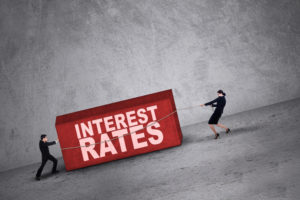Special to the Financial Independence Hub
Long-Term Bonds
On the bond investing side, I was disappointed that so few prominent financial advisors saw the danger in long-term bonds back in 2020. If all you do is follow historical bond returns, then the recent crash in long-term bonds looks like a black swan, a nasty surprise. However, when 30-year Canadian government bond yields got down to 1.2%, it was obvious that they were a terrible investment if held to maturity. This made it inevitable that whoever was holding these hot potatoes when interest rates rose would get burned. Owning long-term bonds at that time was crazy.
One might ask whether we could say the same thing about holding stocks in 2020 when interest rates were so low. The answer is no. Bond returns are very different from stock returns in terms of unpredictability. We use bond prices to calculate bond yields; one is completely determined by the other. The situation is very different with stocks. Even when conditions don’t look good for stocks, they may still give better returns than the interest you’d get if you sold them to hold cash. All the evidence says that most investors are better off not trying to time the stock market.
Most of the time, investors are better off not trying to time the bond market either. However, the conditions in 2020 were extraordinary. Long-term bonds were guaranteed to give unacceptably low returns if held to maturity. This was a perfectly sensible time to shift long-term bonds to short-term bonds or cash savings.
Houses
The only way house prices could rise to the crazy heights they reached was with interest rates so low that mortgage payments remained barely affordable. Fortunately, the government imposed a stress test that forced buyers to qualify for a mortgage based on payments higher than their actual payments. This reduced the damage we’re starting to see now. Unfortunately, there is evidence that some homeowners faked their income (with industry help) so they could qualify for a mortgage. This offset some of the good the stress test did.
We’re starting to hear calls for the Bank of Canada to stop raising interest rates. It’s hard to tell how much of this comes from homeowners and how much is coming from the real estate industry. I have some sympathy for homeowners who really didn’t understand how much their mortgage payments would increase as interest rates rise, but not enough to support bailing out homeowners or keeping interest rates artificially low.
As for real estate agents, there are simply too many of them. The size of this industry is unsustainable. It’s never easy to be pushed out of your job, but that’s what will happen.
Conclusion
A common human failing is to see past events as inevitable; we call this hindsight bias. To make sure I’m not guilty of this myself, I went through some past posts I wrote. A common theme was that interest rates could rise at any time, and we need to protect ourselves. I certainly didn’t know when they would rise, but the need to protect yourself and your family from interest rates returning to normal levels was obvious. Owners of long-term bonds have paid the price, and the pain is just starting for mortgagors. This mess is the inevitable masquerading as the unexpected.
 Michael J. Wiener runs the web site Michael James on Money, where he looks for the right answers to personal finance and investing questions. He’s retired from work as a “math guy in high tech” and has been running his website since 2007. He’s a former mutual fund investor, former stock picker, now index investor. This blog originally appeared on his site on Oct. 10, 2022 and is republished on the Hub with his permission.
Michael J. Wiener runs the web site Michael James on Money, where he looks for the right answers to personal finance and investing questions. He’s retired from work as a “math guy in high tech” and has been running his website since 2007. He’s a former mutual fund investor, former stock picker, now index investor. This blog originally appeared on his site on Oct. 10, 2022 and is republished on the Hub with his permission.


